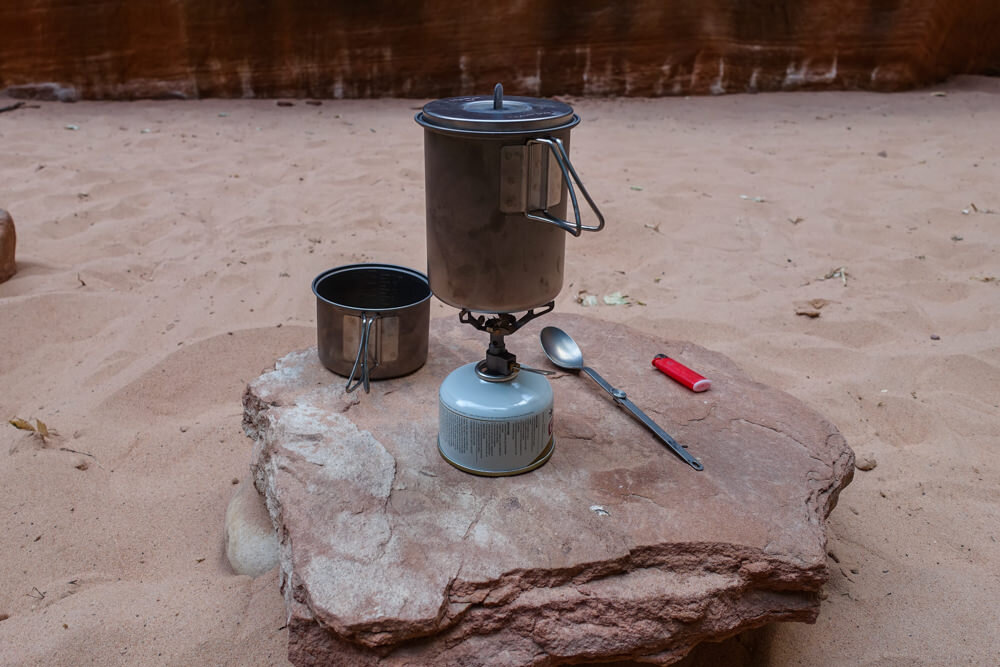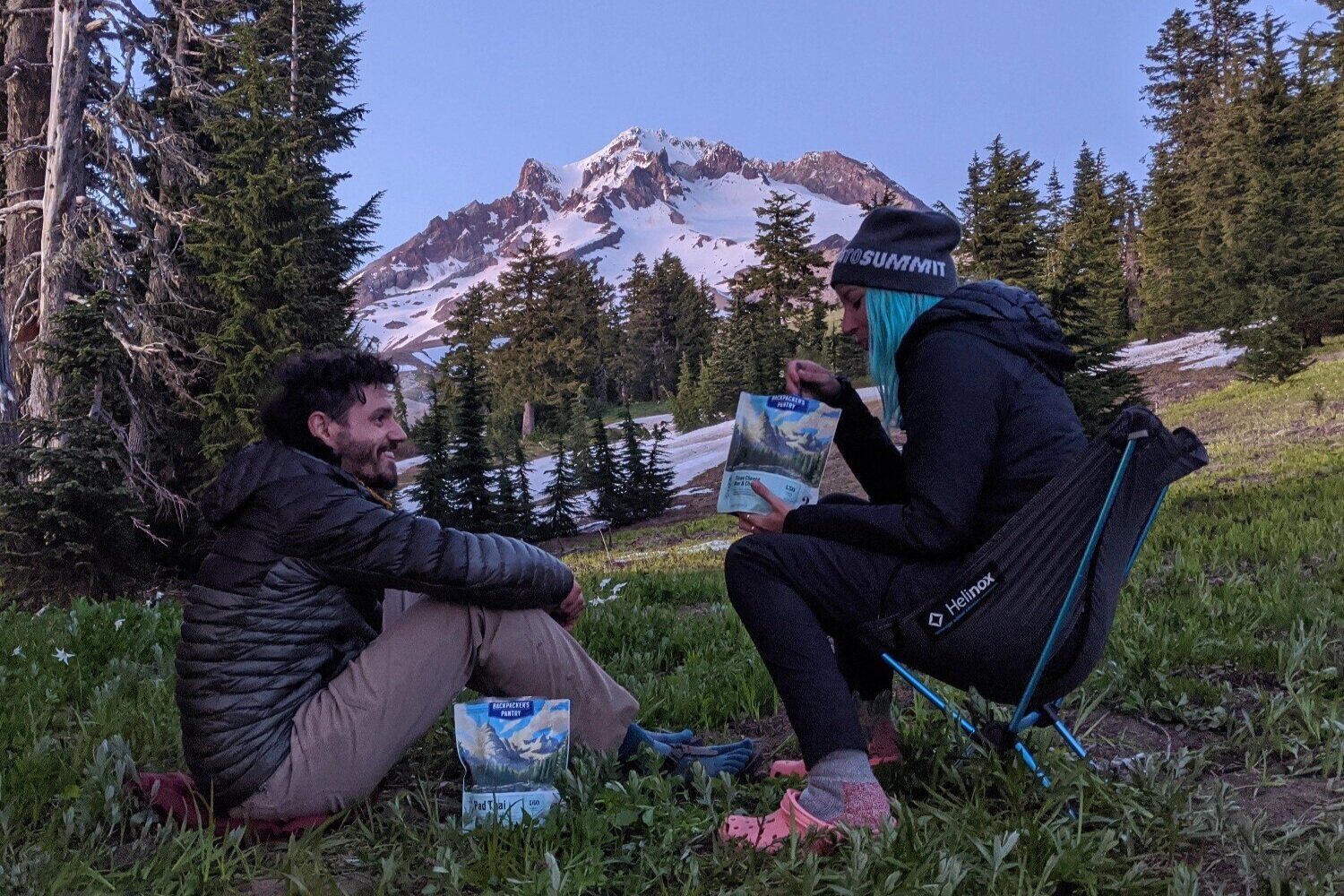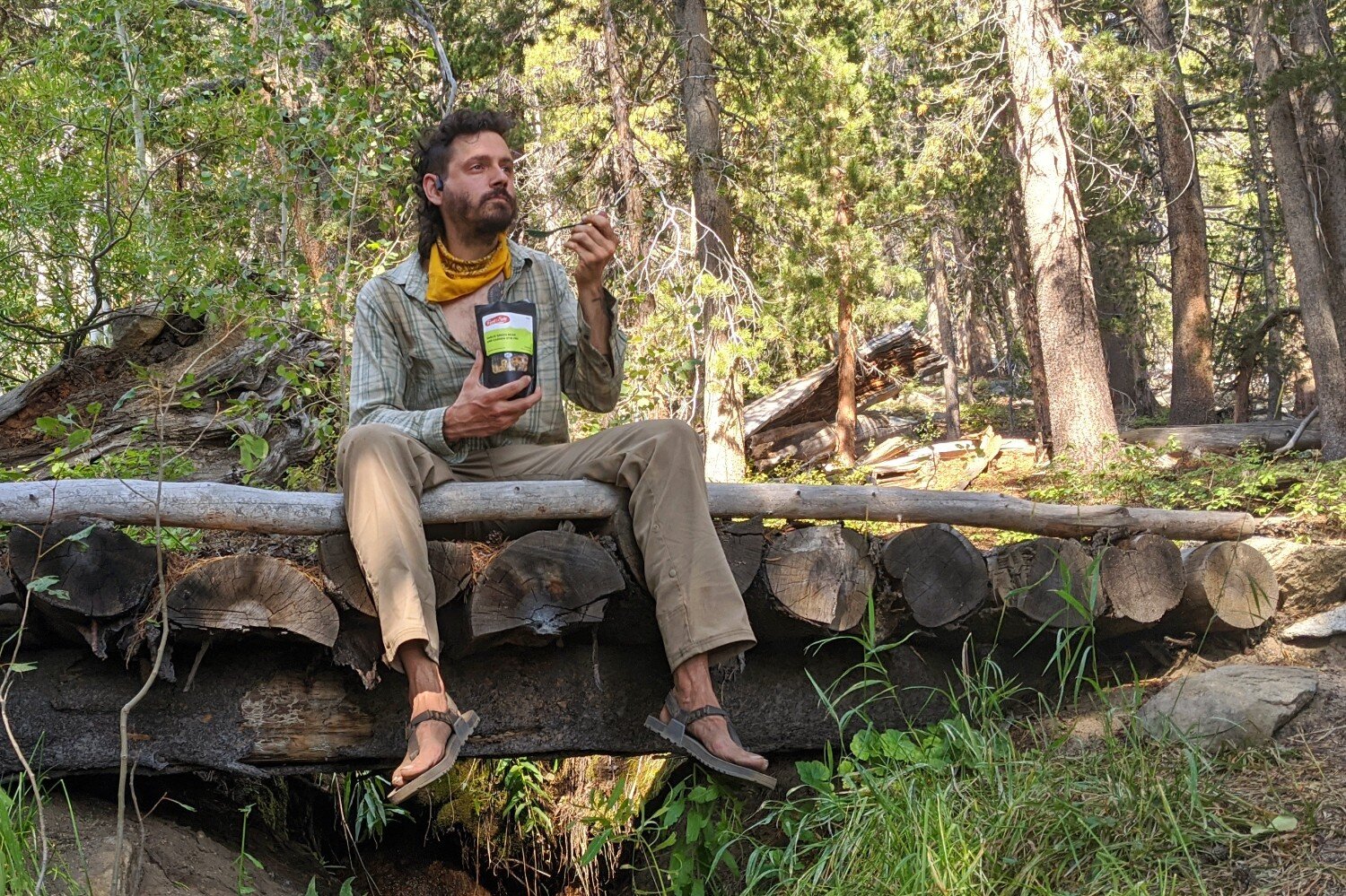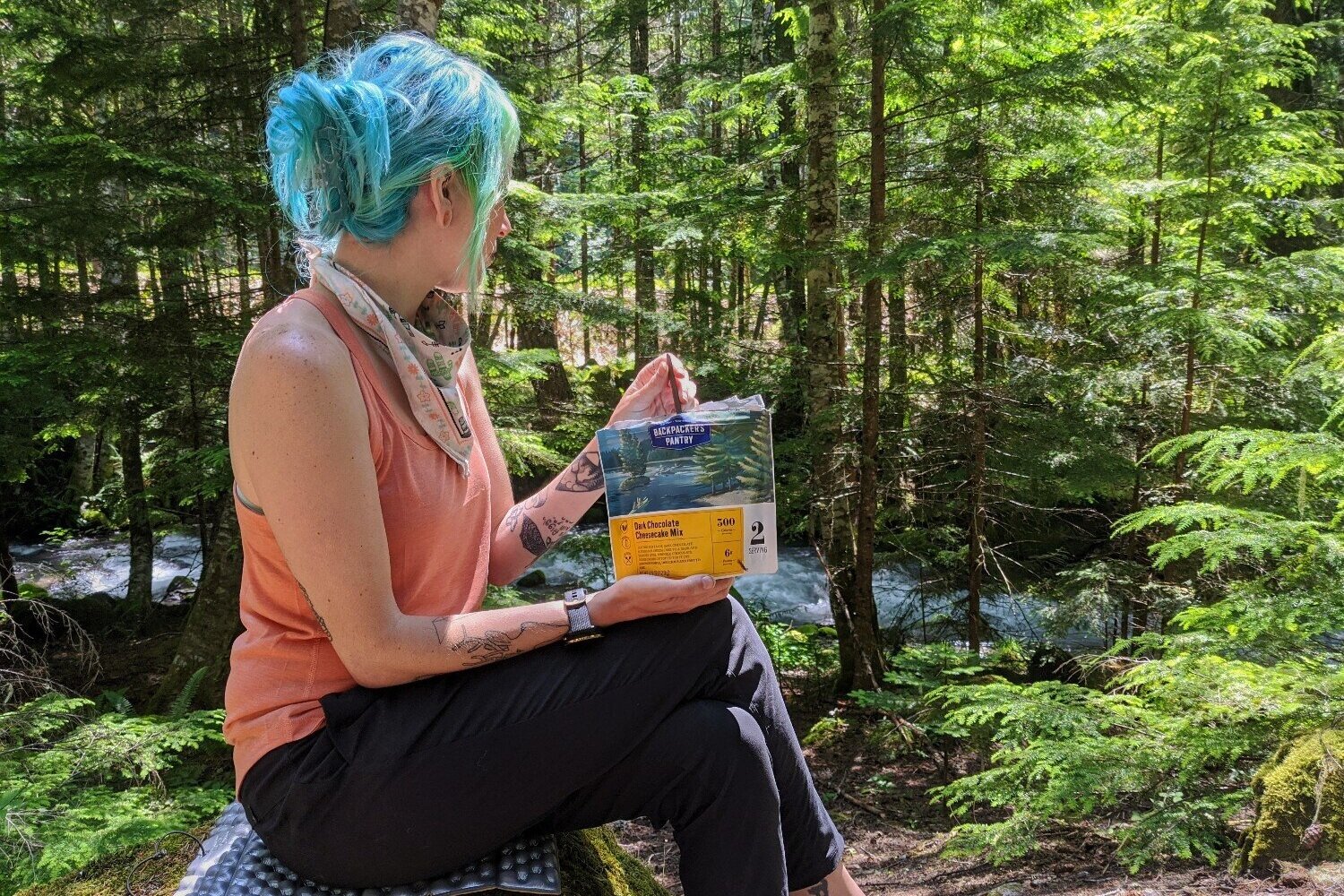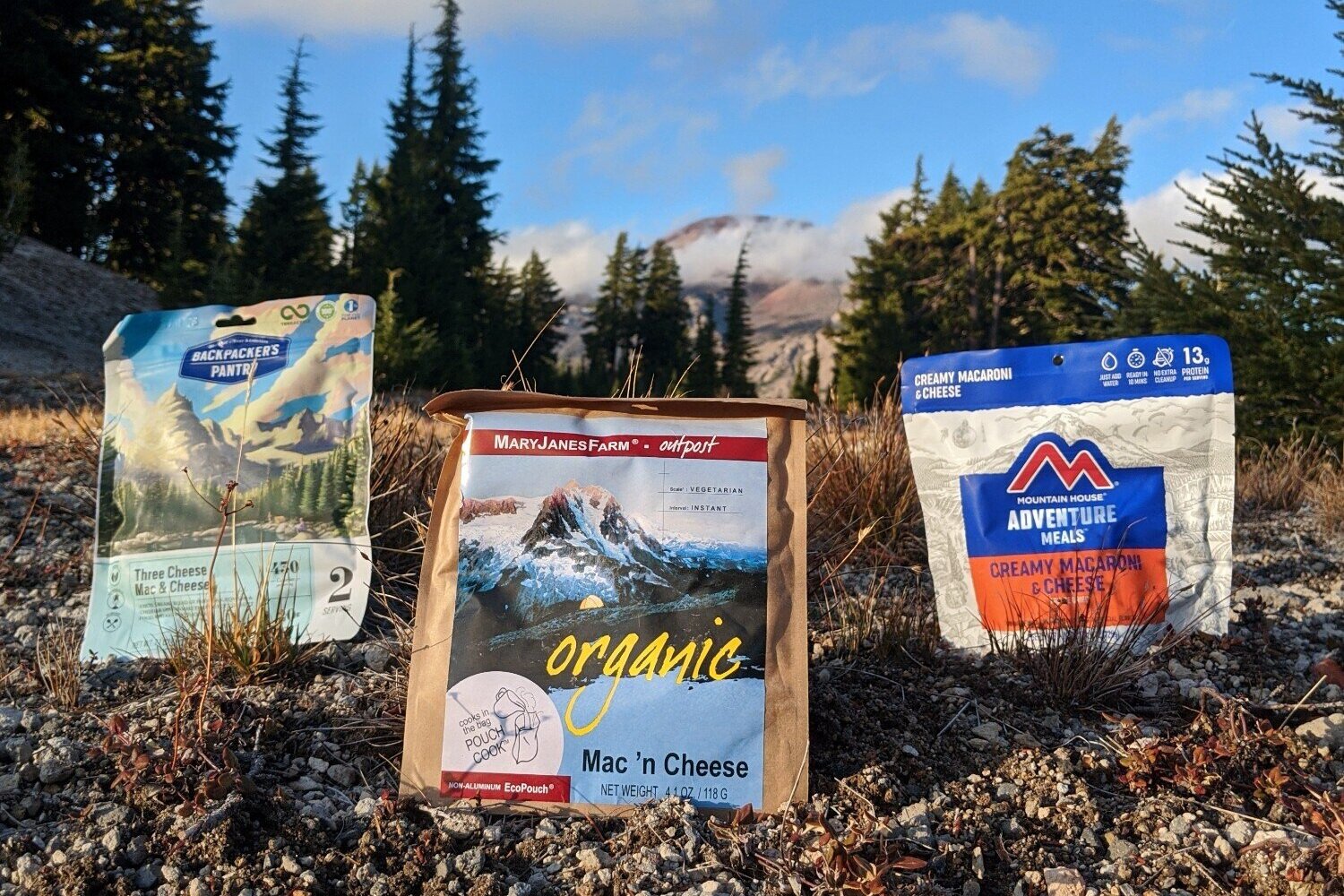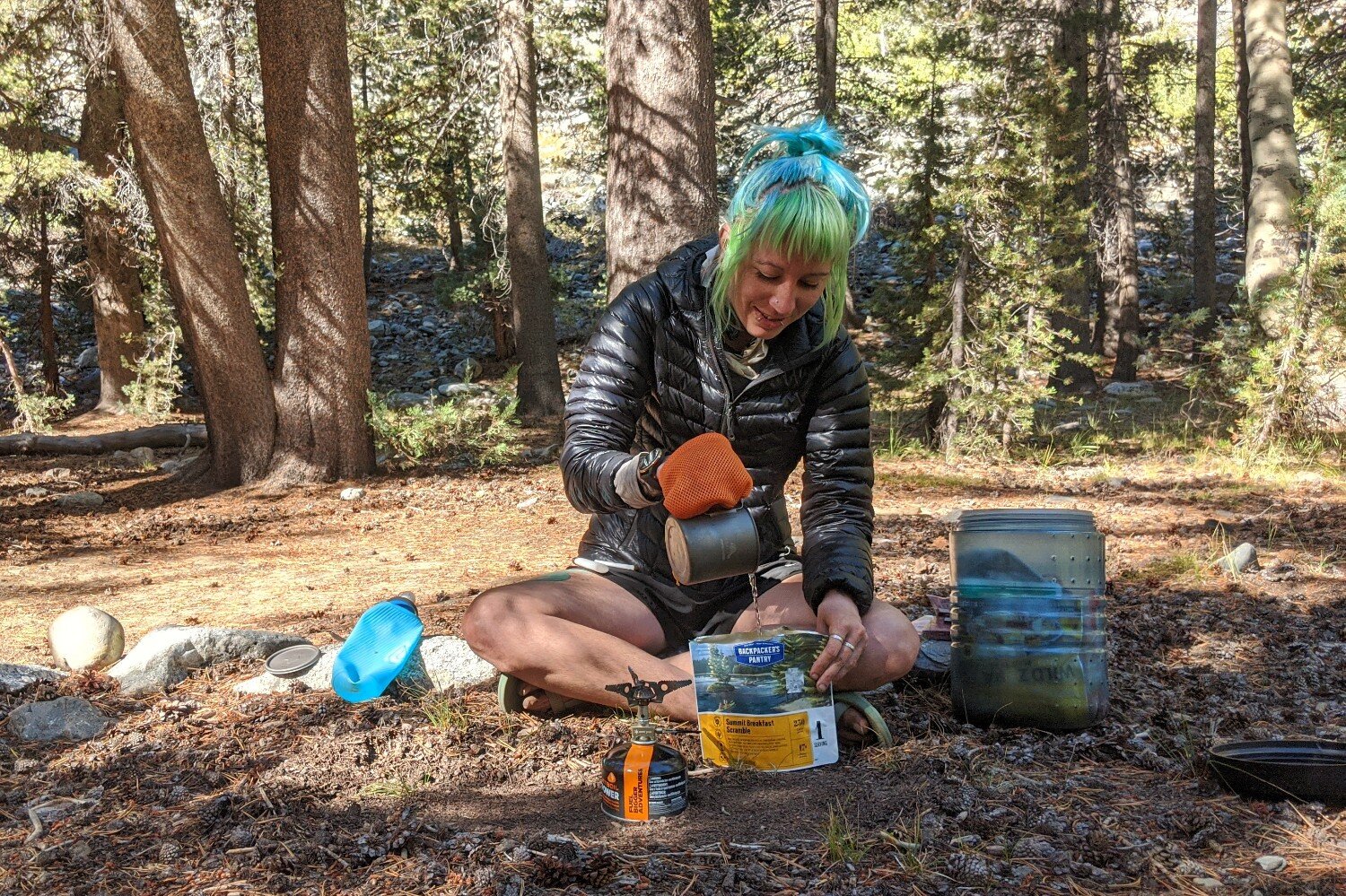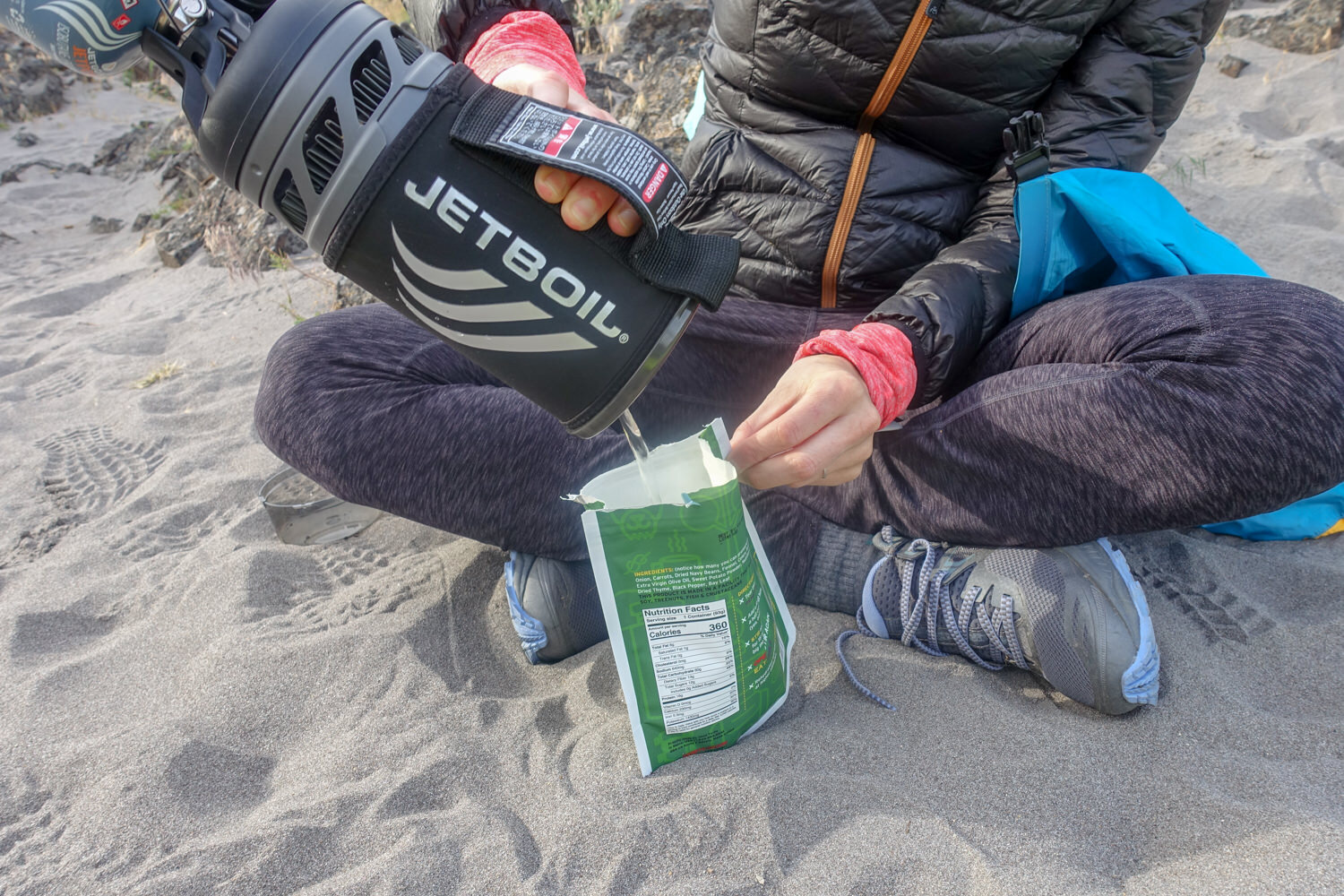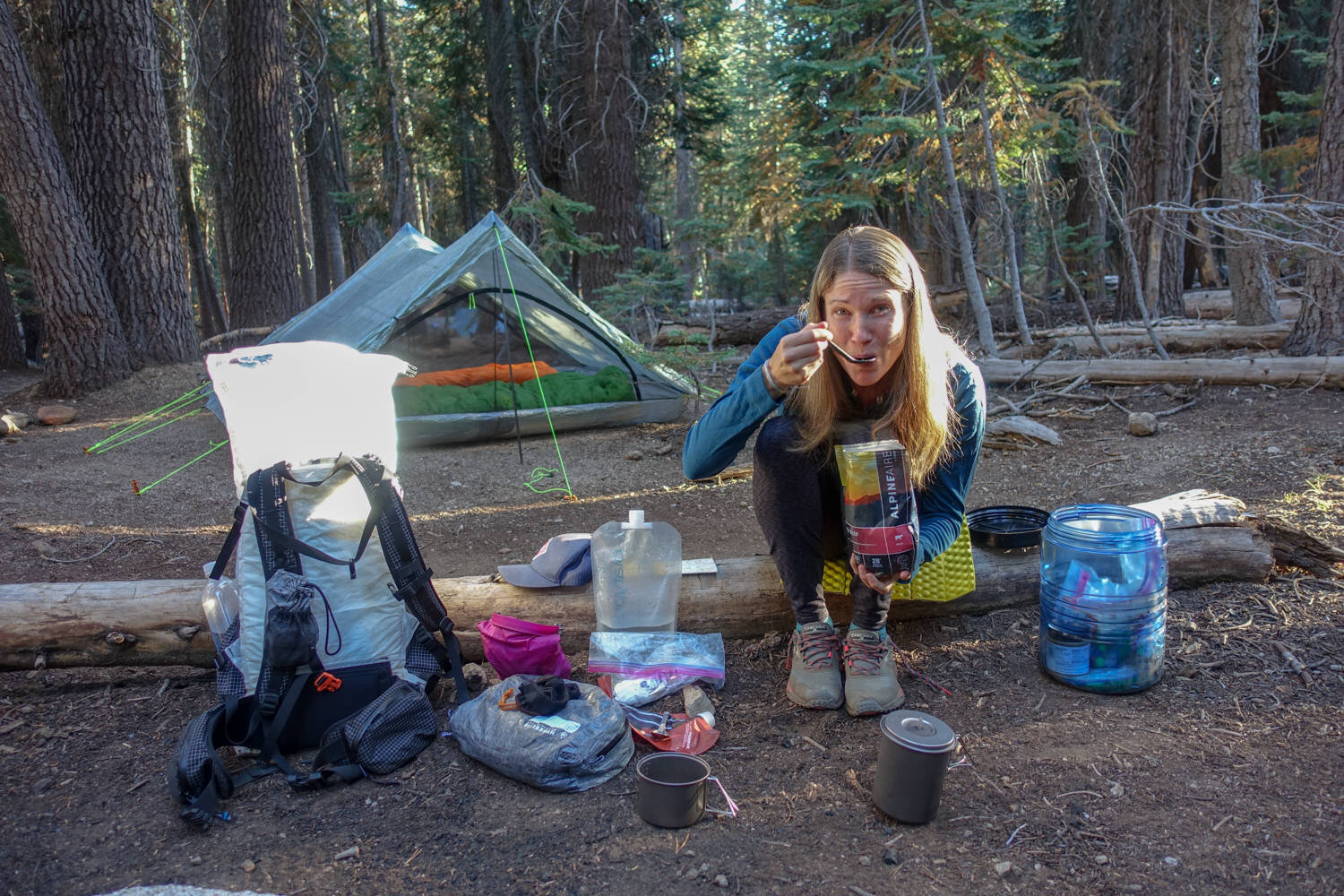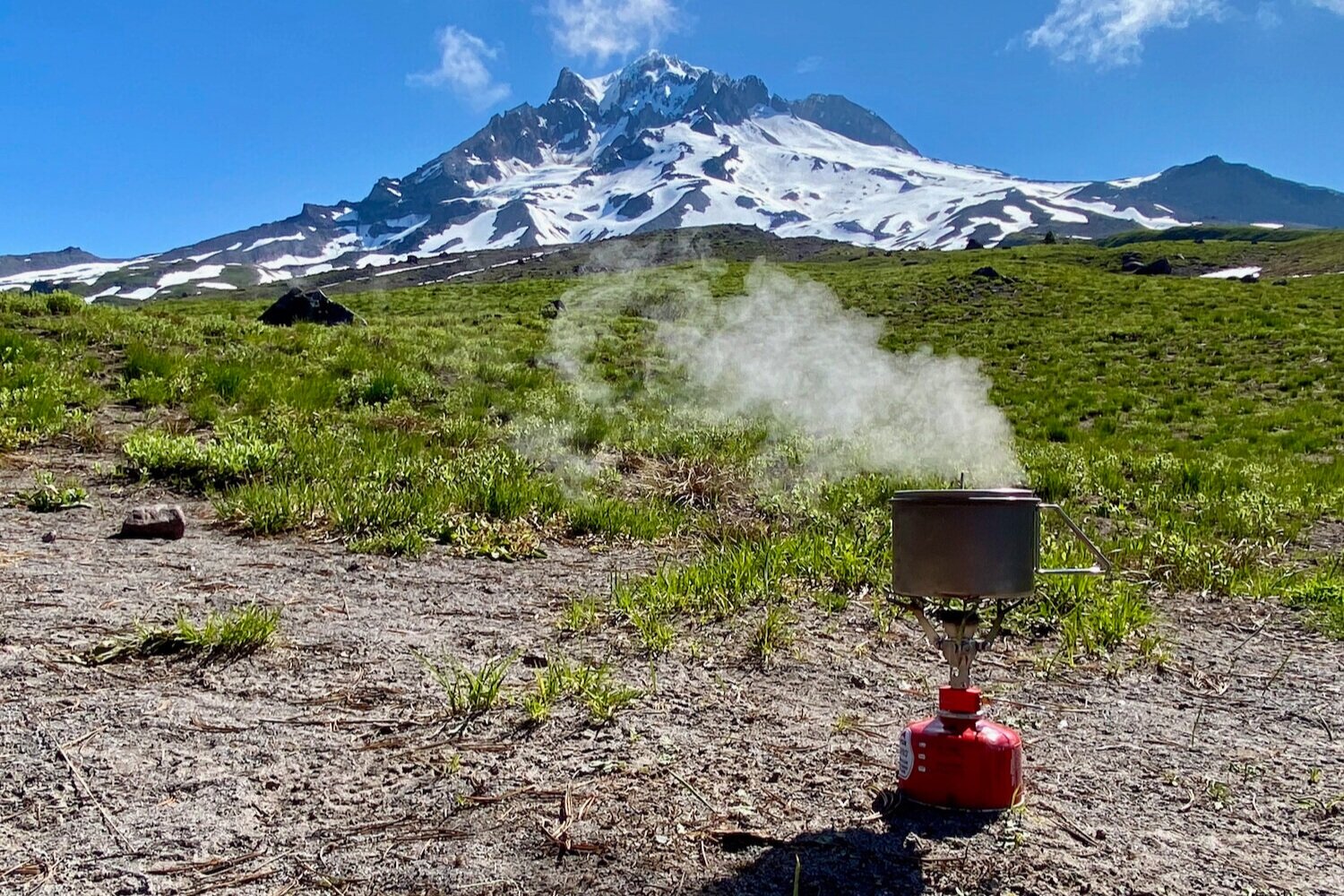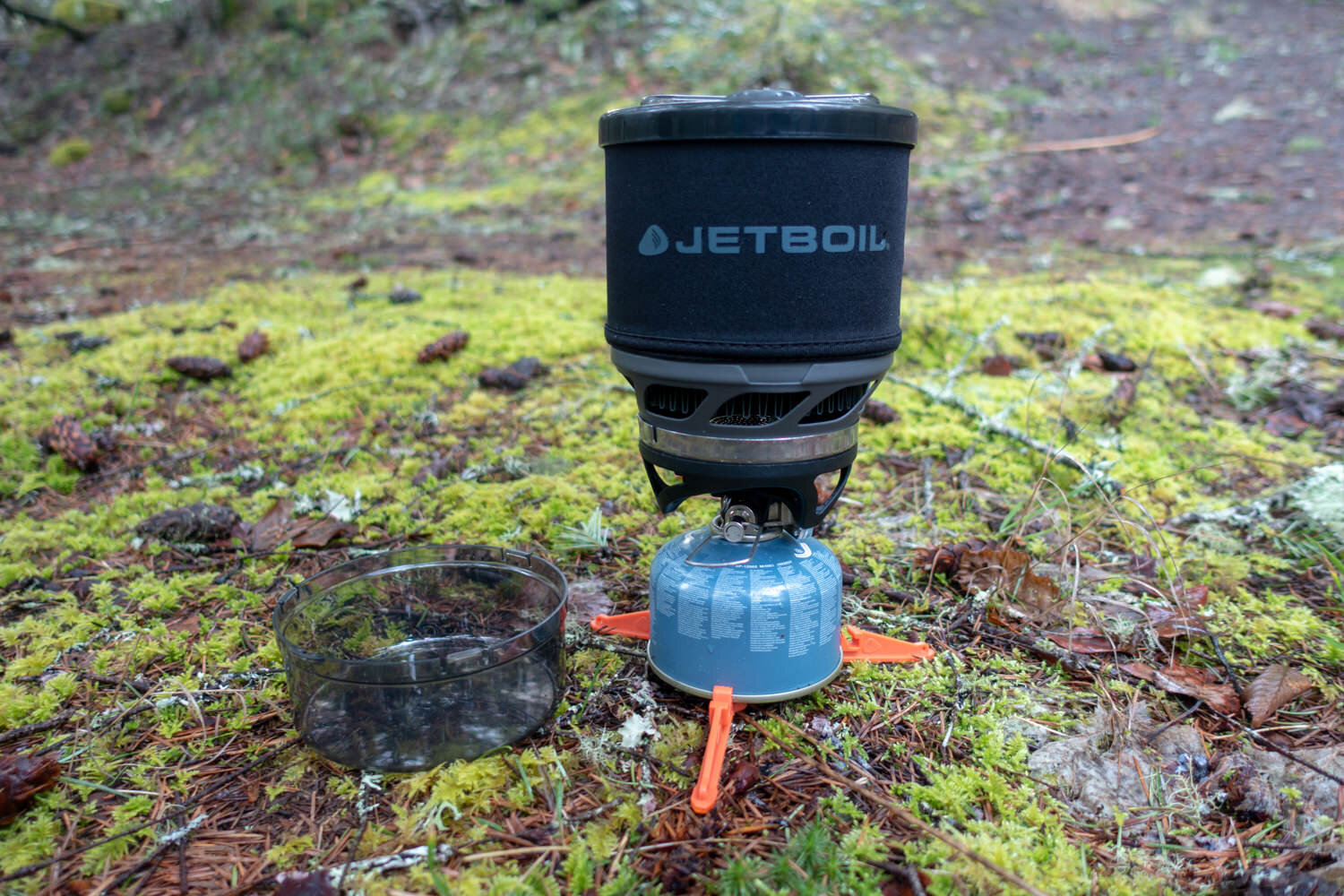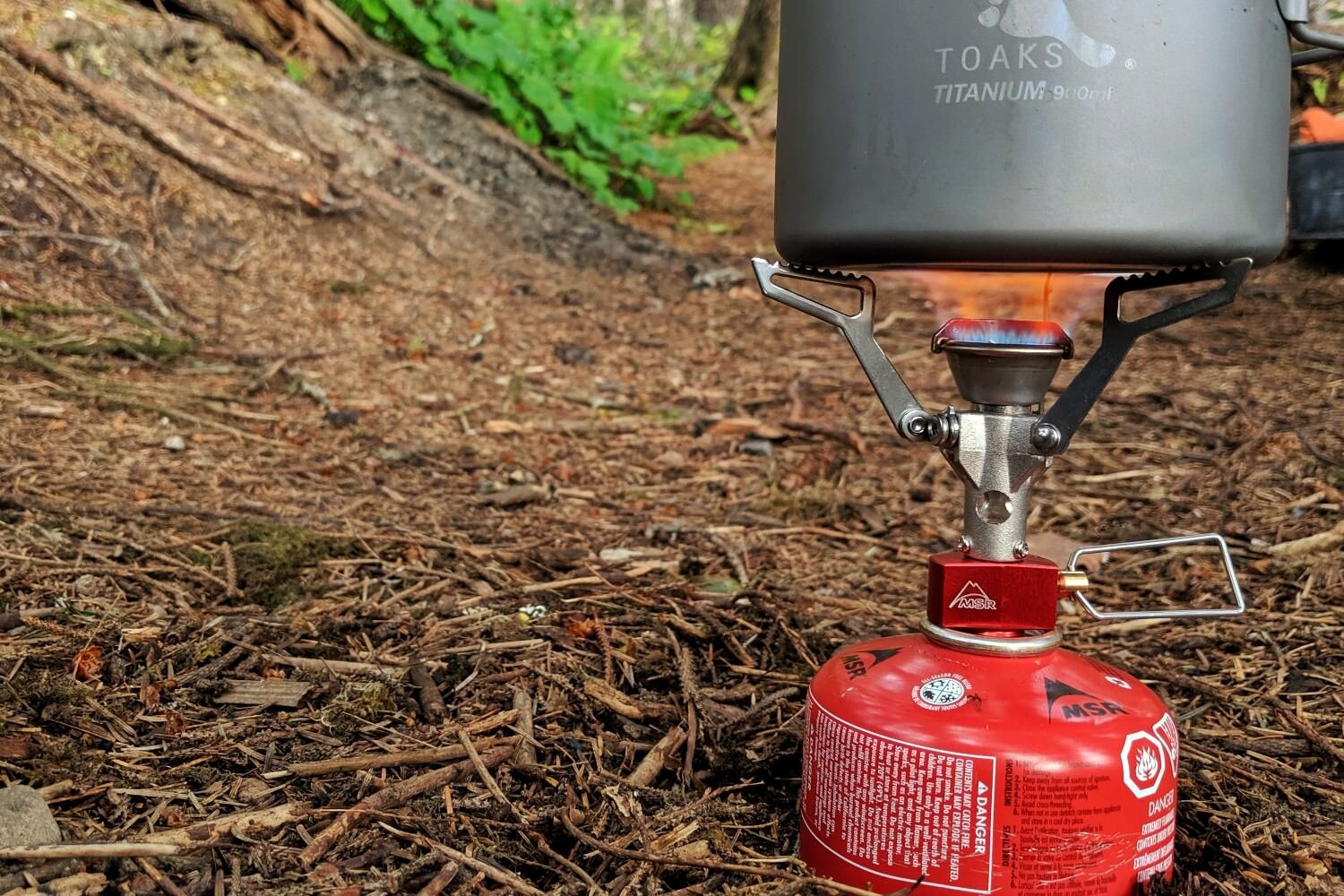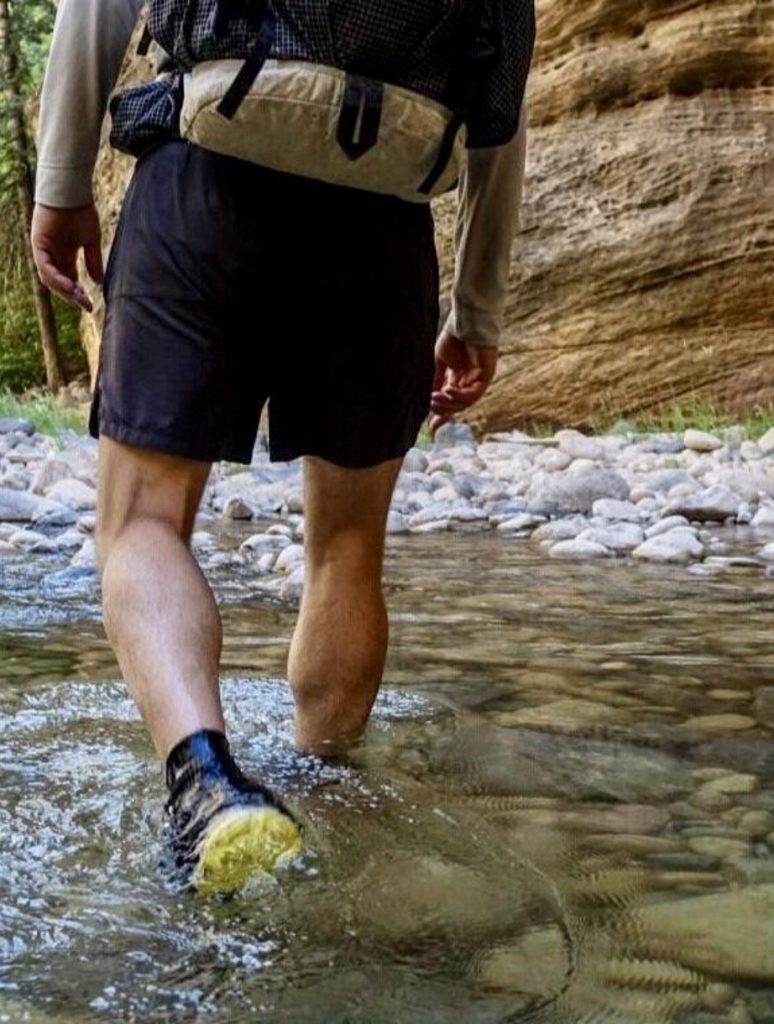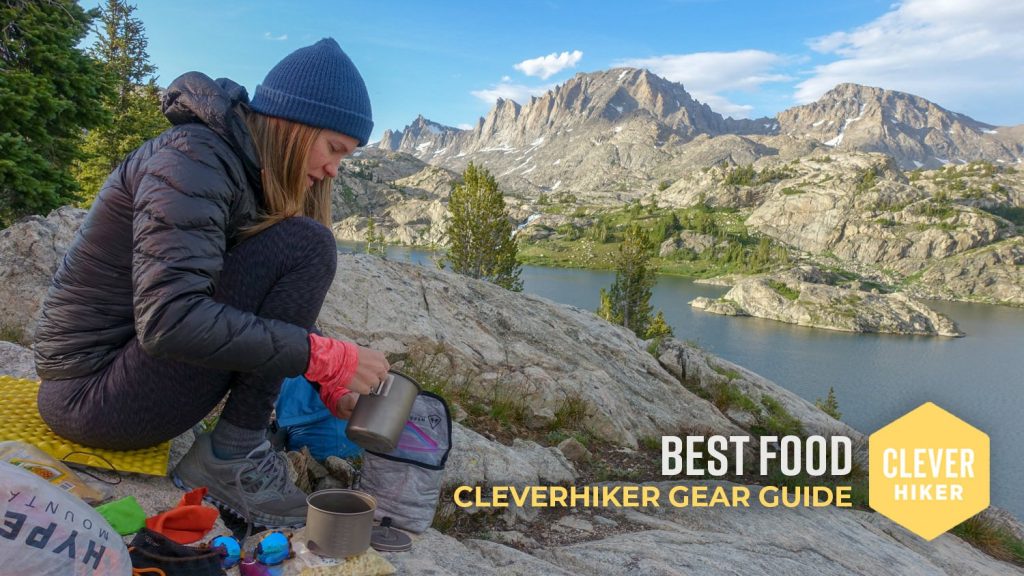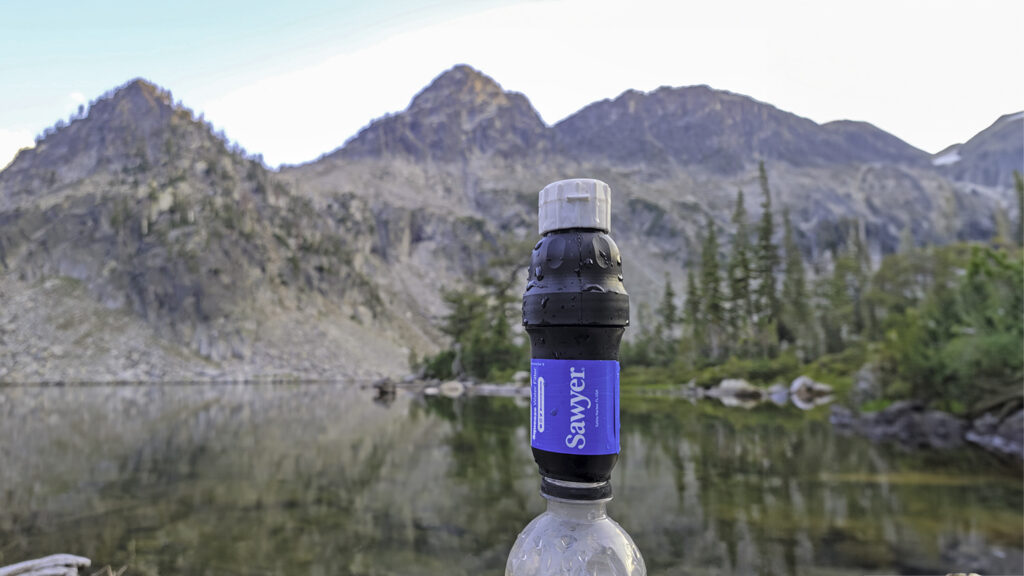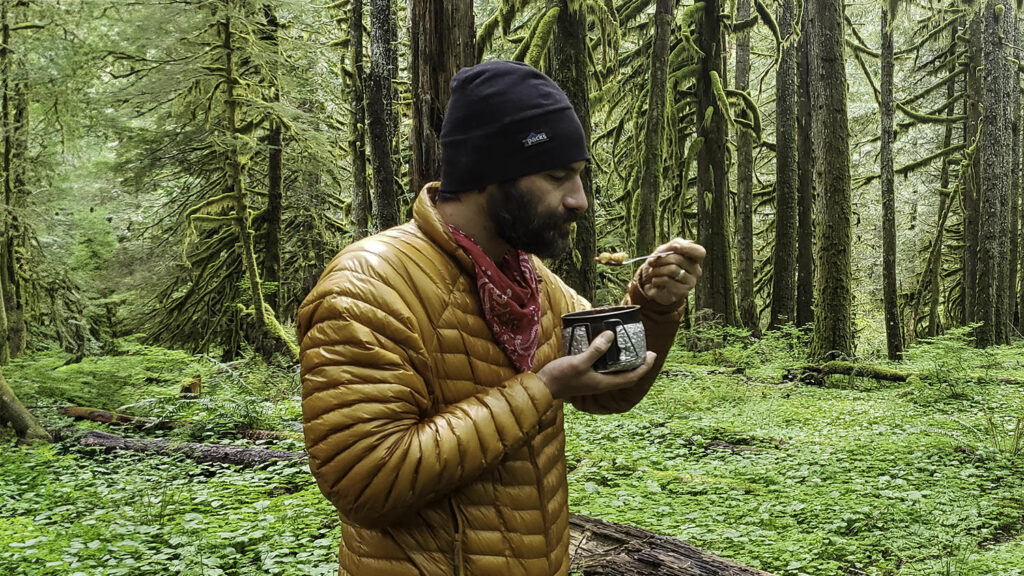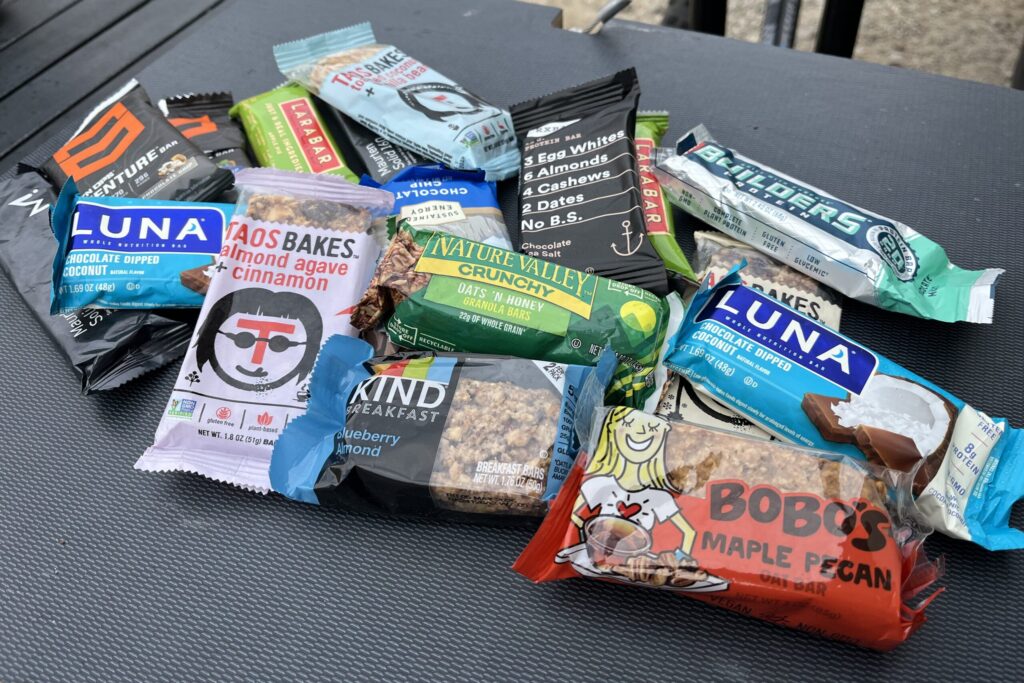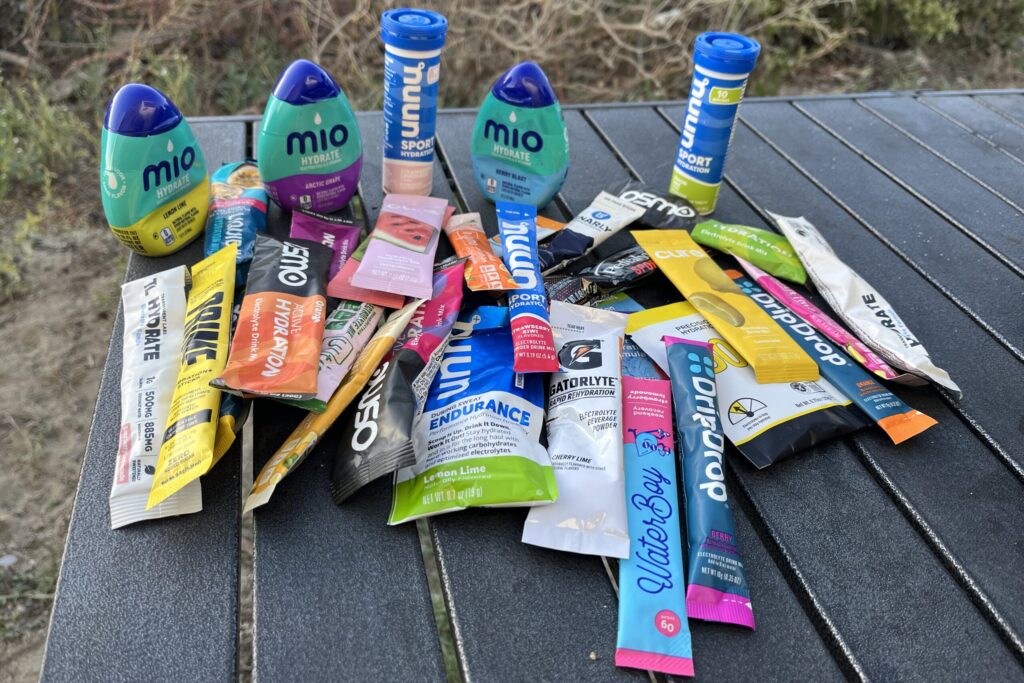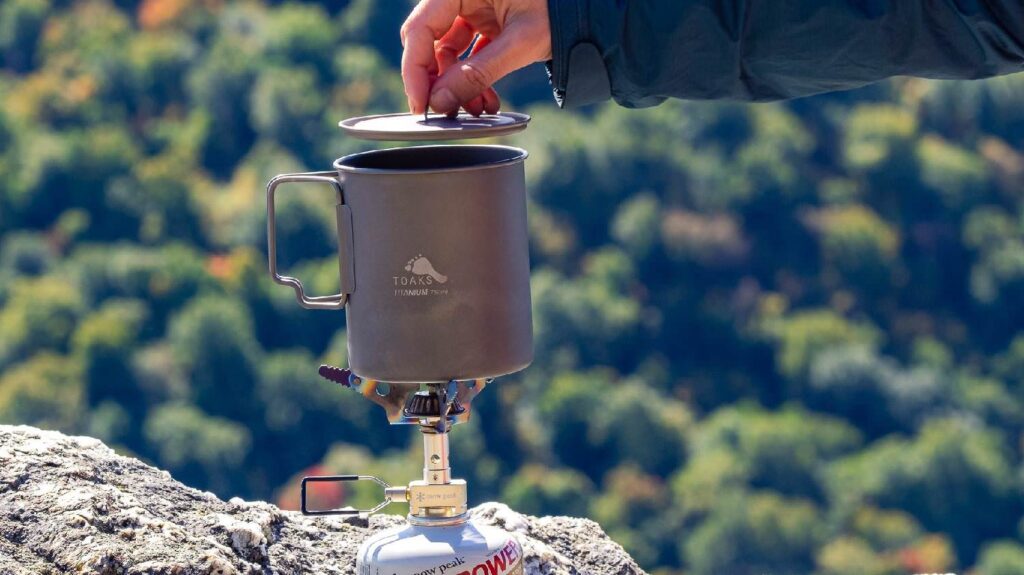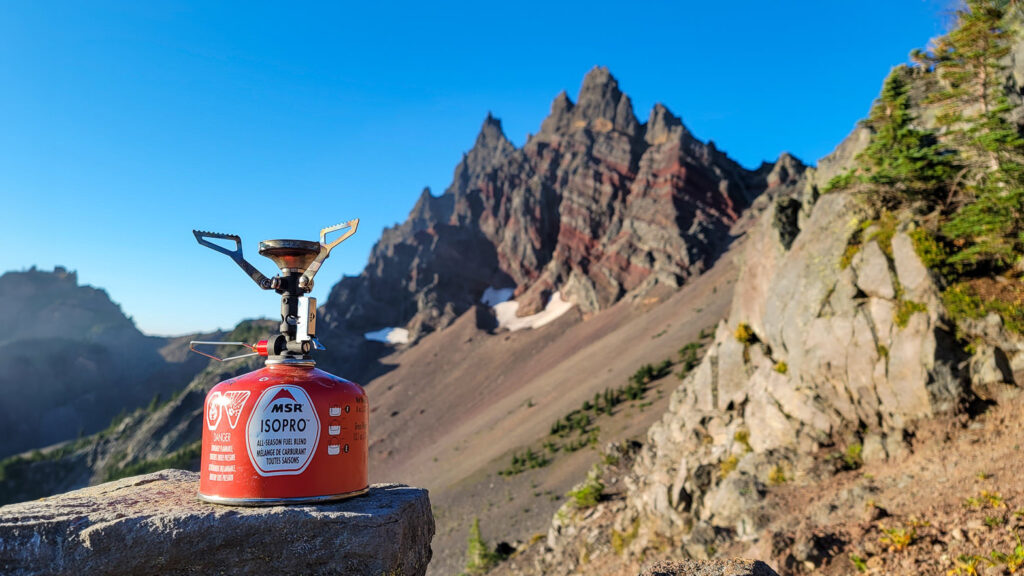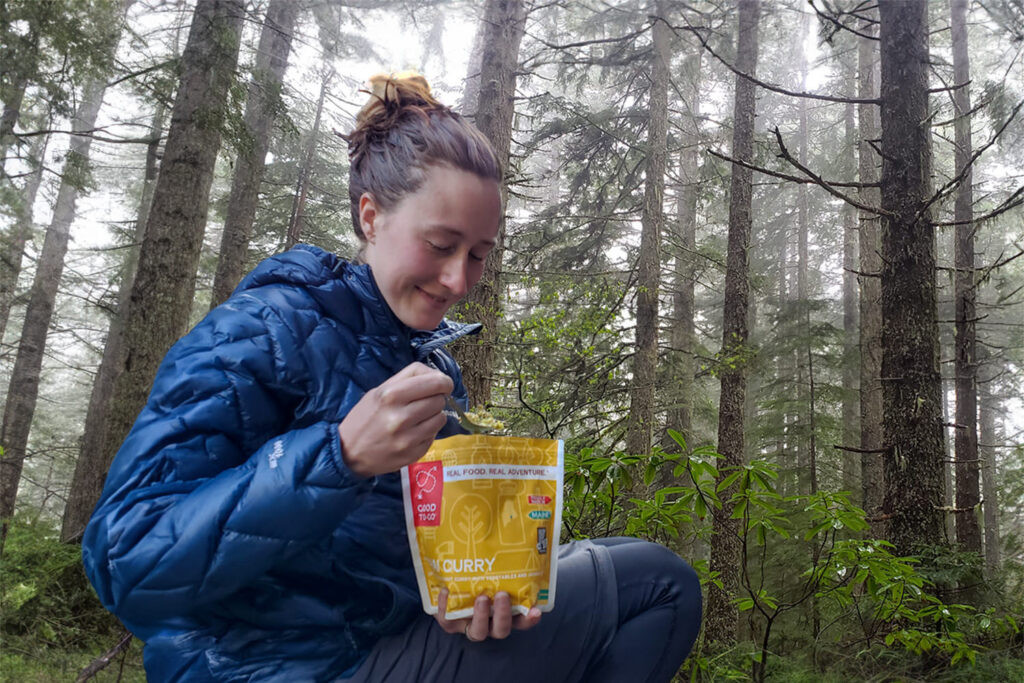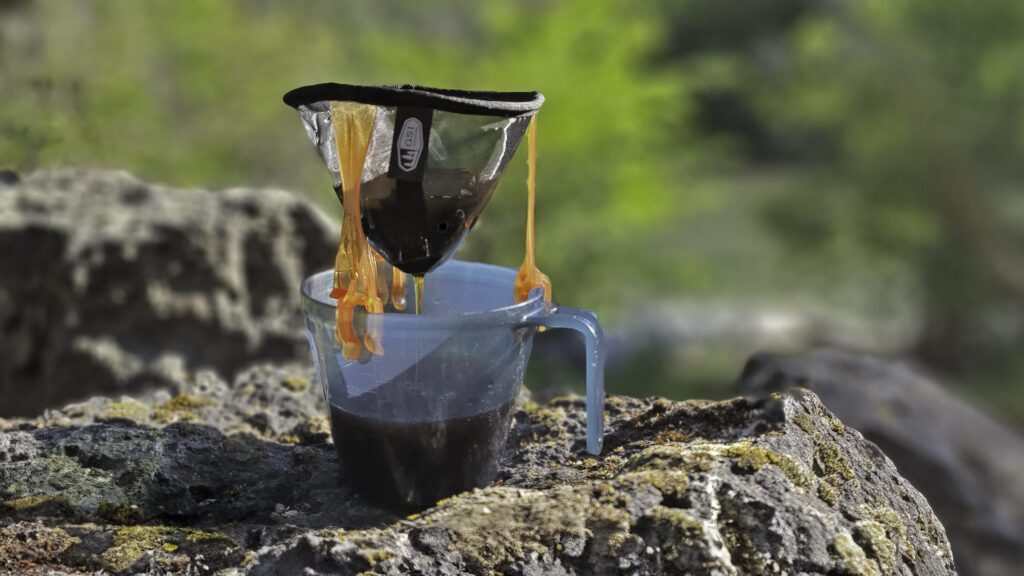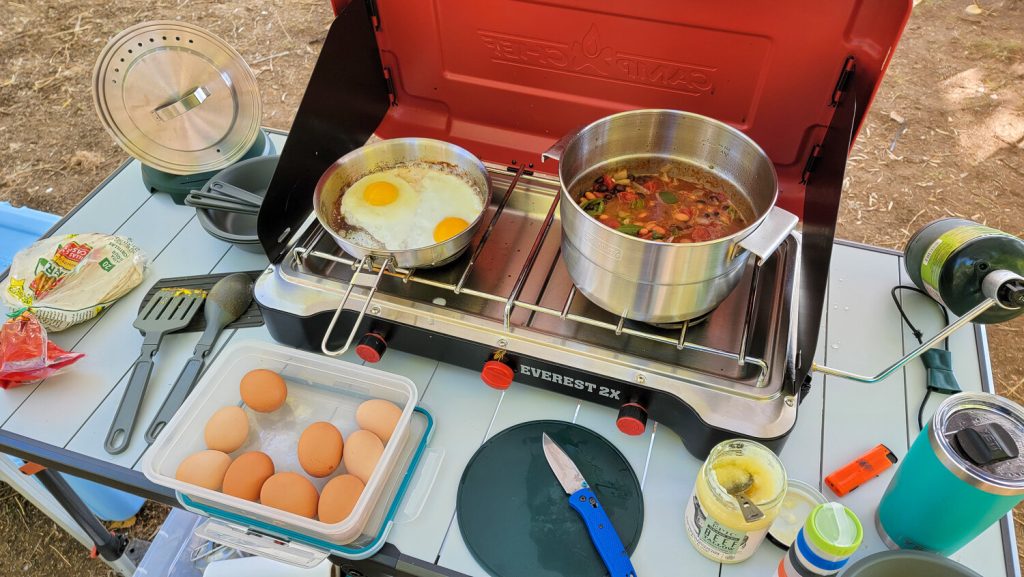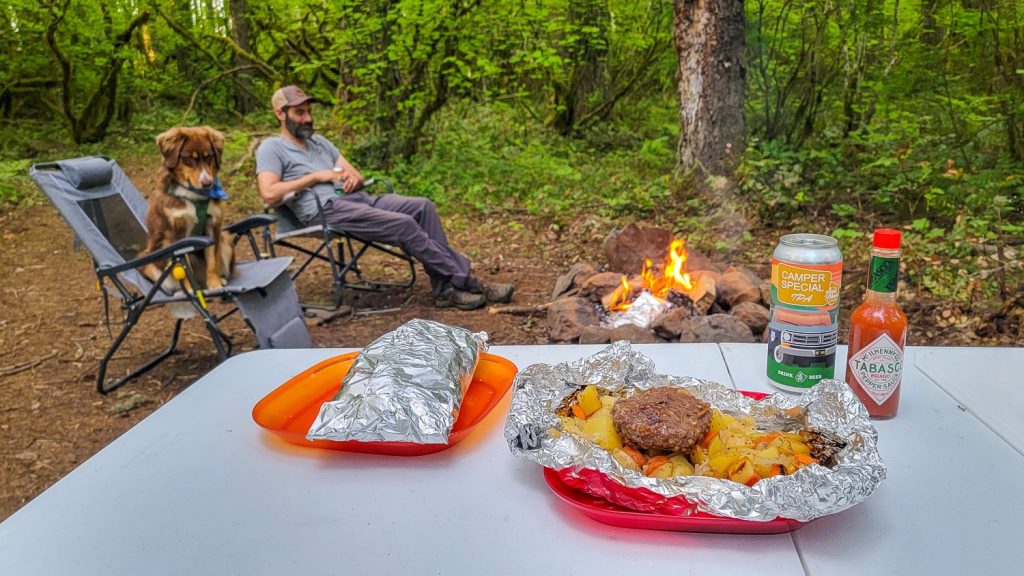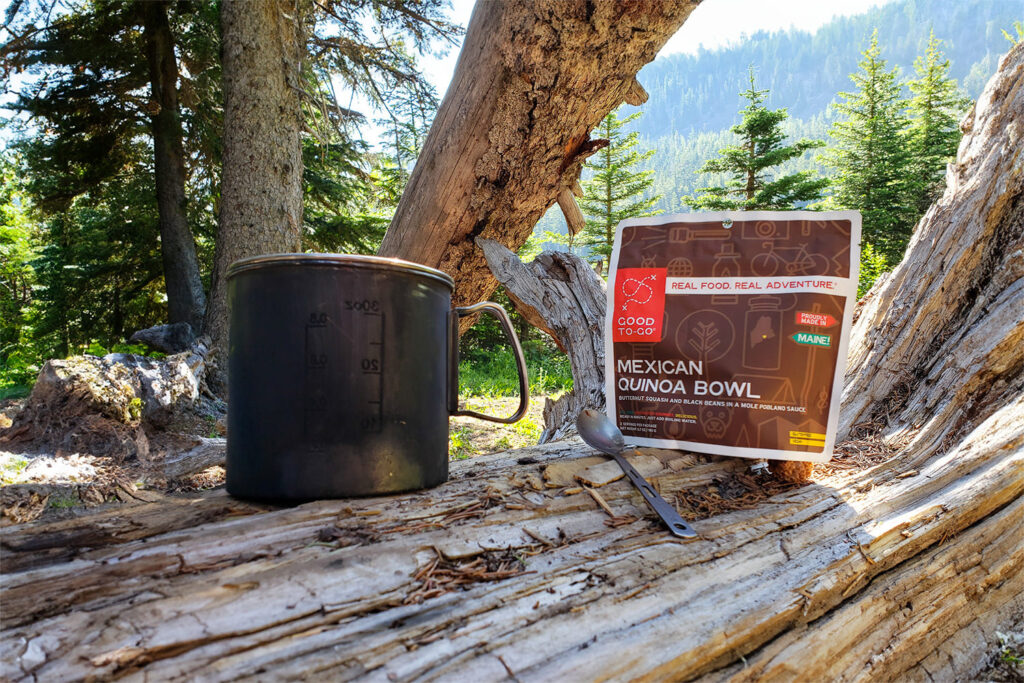
Zucchini and mushrooms and black beans, oh my! We’ve once again donned our fancy food critic pants and ate all the food until there was no more food to eat – vegan and vegetarian style! If you’re sick of eating that one single flavor of vegetarian ramen every night, we’re here to tell you that it’s time to spice up your food bag.
We’ve taste-tested each more than 150 vegan and vegetarian backpacker meals over the course of our 20,000 trail miles. We’ll show you the most delicious, affordable, and calorie-dense veg meals, so you never have to eat subpar food in camp again.
And if you’re looking for some more trail nutrition advice, you’ll love our guides to the Best Energy Bars, Best Hydration Mixes, and Best Backpacking Food.
Quick Picks for Vegan & Vegetarian Backpacking Meals
Check out this quick list of our favorite vegan/vegetarian meals, or continue scrolling to see our full list.
Best flavors
Best ingredients
Largest variety
Best value
What’s new
We’re always trying new meals on our backpacking trips, and we’ve added a few new meals to our list:
- We’ve added the absolutely delicious and easy to make Loco Bueno Restaurant Style Ready Beans to the list with a five-squirrel rating.
- GOOD TO-GO Carrot Ginger Power Bowl has been added to our list of five-squirrel meals.
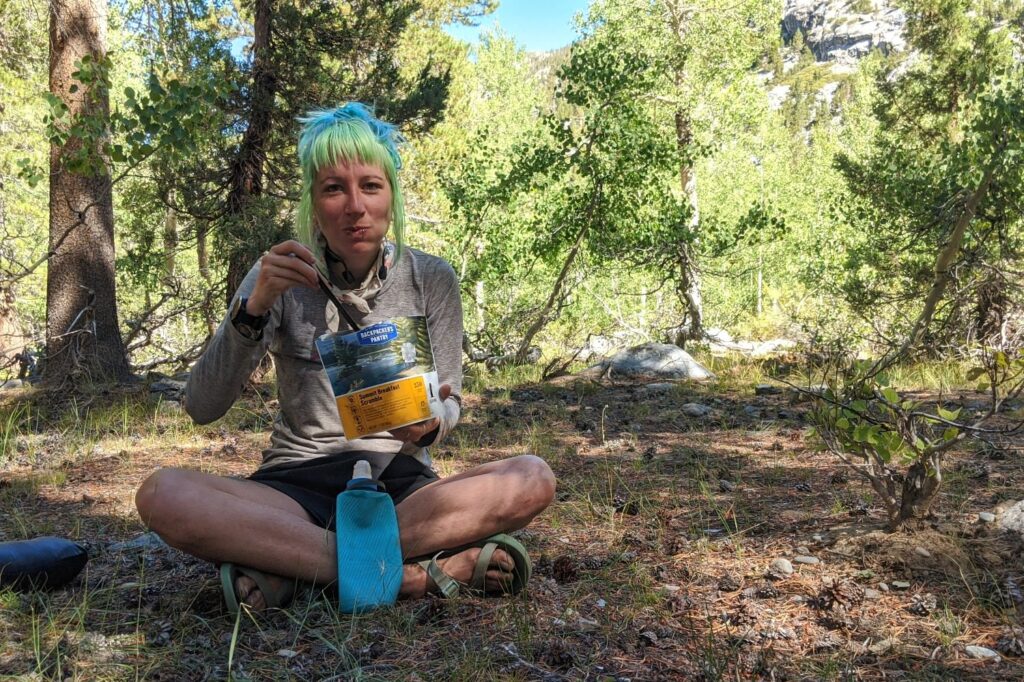
What’s Most Important to You in a Backpacking Meal?
DIET
More and more folks are going vegan and gluten-free, and luckily the freeze-dried food industry is adapting to cater to that crowd. It’s not always super obvious which meals are friendly to which diets, so to make it easy, we’ve marked all the meals with V or GF on the list below.
PRICE
Freeze dried meals are not cheap and there are plenty of inexpensive alternatives (instant potatoes, pasta sides, ramen, etc). If you’re spending months on the trail thru-hiking, meals like these will probably be too expensive to be sustainable. But we still bring a couple on long trips to have as a treat and to save ourselves from having to do dishes.
Pro tip: When you buy 8 or more backpacking meals from REI, you save 10%. We usually stock up for the hiking season. You can also save money by purchasing bulk meal kits.
Best value freeze-dried meals (typically less than 1¢/calorie):
CALORIES/OZ
Many backpackers choose freeze-dried meals because they’re lightweight. The process of freeze-drying a meal removes 80% of it’s water weight, while retaining a high level of calorically-dense nutrition. Most meal pouches range between 500-900 calories and weigh around 5-7 ounces. This puts them in the 100-130 calorie-per-ounce ratio. We always shoot for most of the food in our bag to be above 100 calories per ounce.
Highest cal./oz. Meals (over 130)
- Mountain House – Creamy Macaroni & Cheese
- Firepot – Vegan Orzo Bolognese
- Backpacker’s Pantry – Dark Chocolate Cheesecake
- Mountain House – Granola w/ Milk & Blueberries
MEAL OF THE DAY
Maybe you’re the type that only cooks for dinner or you like to spoil yourself with a fancy dessert every now and then. If we could only have two freeze-dried meals from each category for the rest of our lives, here’s what we’d pick.
Best Breakfasts
Best Lunches
- GOOD TO-GO – Carrot Ginger Power Bowl
- GOOD TO-GO – Smoked Three Bean Chili
- Loco Bueno – Restaurant Style Ready Beans
Best Dinners
Best Desserts
MAC & CHEESE
Here at CleverHiker, we know what’s really important to all of you backcountry gourmets: macaroni and cheese. Trust us when we say, we also take our noodles and cheese sauce quite seriously. Noodle shape? Texture? How many different cheeses? We’ve put the best mac on the market to the test to find out which one is truly superior.
Best freeze-dried macaroni & cheese
Squirrel Rating System
Whenever we go backpacking, we take some of our tried-and-true favorite freeze dried meals. Each trip we also take some new flavors to test out. First established by our dear friend David Branson while hiking the Zion Traverse, the very “scientific” CleverHiker Squirrel Rating System was born. We’ll call it the SRS for now. While consuming new freeze dried meals, we deliberate about how it tastes and ultimately decide on a squirrel rating. Every meal we eat earns a squirrel rating score between 1 and 5 based on flavor, texture, and overall deliciousness. There are only whole squirrel ratings, because half a squirrel would be gross. We update this list every time we put on our snobby food critic pants and stuff our faces in the backcountry.
V = Vegan, GF = Gluten-Free
Five Squirrel Meals
Did my grandma make this?! Our go-to favorite freeze dried meals for happy trail bellies.
- Mountain House – Creamy Macaroni & Cheese
- Mountain House – Pasta Primavera
- Backpacker’s Pantry – Pad Thai (V, GF)
- Backpacker’s Pantry – Three Cheese Mac & Cheese
- Backpacker’s Pantry – Cuban Coconut Rice & Black Beans (V, GF)
- Backpacker’s Pantry – Summit Breakfast Scramble (GF)
- Backpacker’s Pantry – Dark Chocolate Cheesecake
- MaryJanesFarm – Organic Bac’un & Egg Scrambler
- MaryJanesFarm – Bare Burrito
- GOOD TO-GO – Indian Vegetable Korma (GF)
- GOOD TO-GO – Smoked Three Bean Chili (V, GF)
- GOOD TO-GO – Carrot Ginger Power Bowl (V, GF)
- Loco Bueno – Restaurant Style Ready Beans (V, GF)
- Packit Gourmet – Santa Fe Corn Pudding
- Packit Gourmet – Mom’s Banana Puddin’
- Farm to Summit – Green Chili Mac & Cheese
Four Squirrel Meals
Pretty darn tasty! However, some flavors and textures made us knock it down a squirrel.
- Mountain House – Granola w/ Milk & Blueberries
- Backpacker’s Pantry – Creme Brulee (GF)
- Backpacker’s Pantry – Three Sisters Stew (V, GF)
- Backpacker’s Pantry – Chana Masala (V, GF)
- GOOD TO-GO – Mexican Quinoa Bowl (V, GF)
- GOOD TO-GO – Kale & White Bean Stew (V, GF)
- GOOD TO-GO – Bibimbap (V, GF)
- GOOD TO-GO – Pasta Marinara (V, GF)
- Nomad Nutrition – Irish Shepherd’s Pie (V, GF)
- Nomad Nutrition – Cali Breakfast Bowl (V, GF)
- Nomad Nutrition – Spanish Paella (V, GF)
- Packit Gourmet – West Memphis Grits Souffle
Three Squirrel Meals
Quite good still, but nothing to write home about. We might buy them again, but we weren’t amazed.
- MaryJanesFarm – Cheddar Herb Pasta
- GOOD TO-GO – Herbed Mushroom Risotto (V, GF)
- Nomad Nutrition – Indian Red Lentil Stew (V, GF)
Two Squirrel Meals
Meh. Edible, but pretty underwhelming. This is when the hot sauce and spices come into play. But it’s not like we had any leftovers or anything.
- Backpacker’s Pantry – Granola w/ Blueberries, Almonds & Milk
- Backpacker’s Pantry – Granola w/ Bananas, Almonds & Milk
- Backpacker’s Pantry – Kathmandu Curry (V, GF)
- MaryJanesFarm – Organic Lentils, Rice & Indian Spice (V)
- Nomad Nutrition – Caribbean Curry (V, GF)
One Squirrel Meals
Whoa boy, that was a disappointment. Considering how hungry we were, backcountry meals should probably be more foolproof than this.
What’s in Our Camp Kitchen?
When we head out on backcountry trips, these are the items usually found in our packs. For more information on our favorite gear, check out the CleverHiker Backpacking Gear Guide and our Stove Buyers Guide.
Stove System
Ultralight Stove
1-2 Person Cookpot
Spoon
Cup
1-2 Person Cookpot
Food Storage
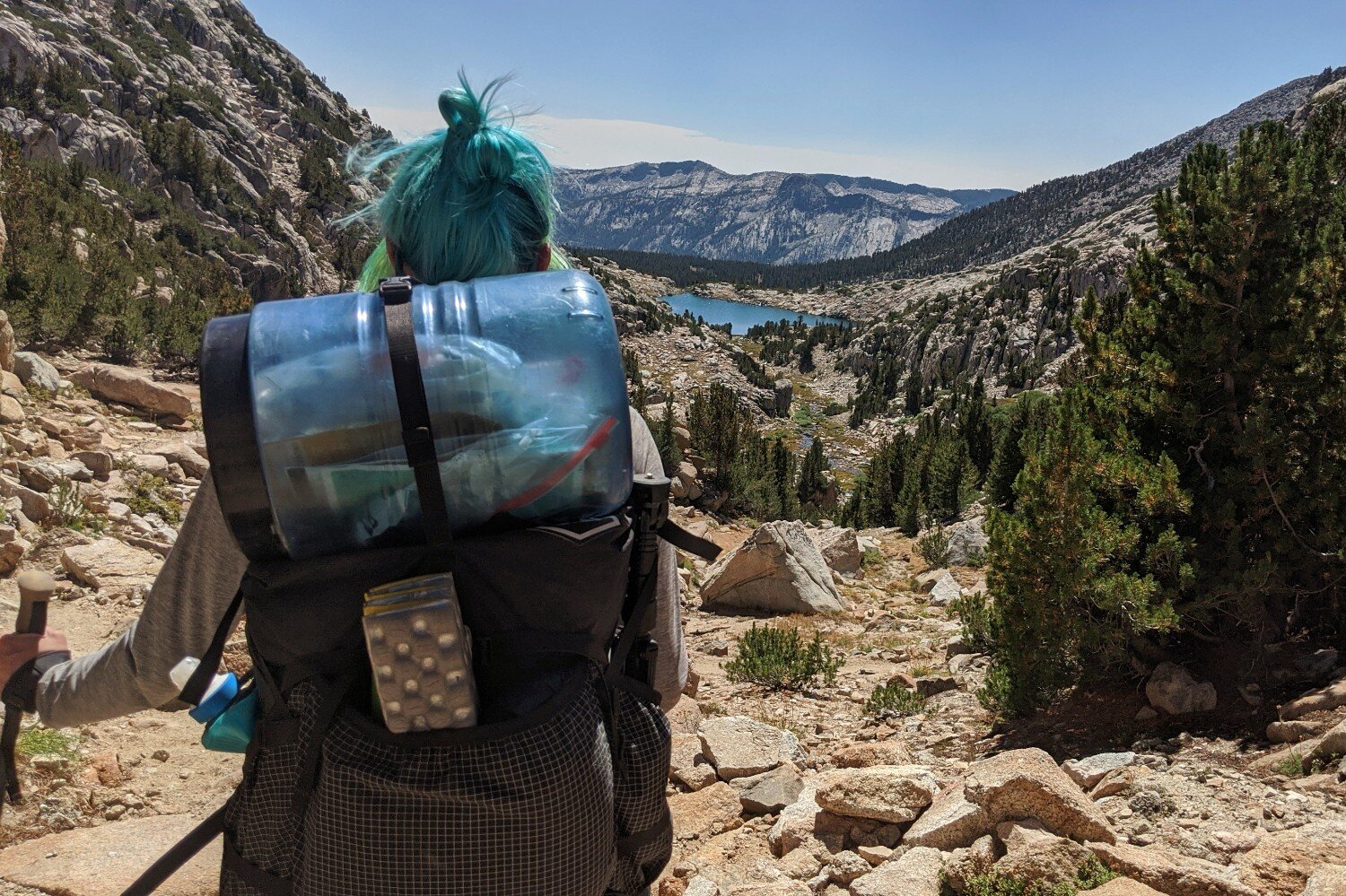
Critical Freeze-Dried Meal Considerations
PROS & CONS OF FREEZE-DRIED MEALS
We have really come to enjoy bringing freeze-dried meals on trips because of the convenience, but there are some definite drawbacks. We usually bring a combination of DIY meals and freeze-dried meals to get the best of both worlds. Here are some things to consider with freeze-dried meals if you’re not sure which style is best for you:
Pros:
- You can get them started then walk away to do other things, like filter more water, while they rehydrate
- You can have a large variety of flavors on your trip
- Most meals cook in their own packaging, so you don’t have to clean a dish
- Most meals are calorie-dense and filling
Cons:
- Convenience comes at a price, and freeze-dried meals almost always cost more than DIY meals (check out the DIY MEALS section below for some money-saving alternatives)
- The air inside the packaging can make freeze-dried meals bulky. This is especially important to consider if you have to pack all of your food in a bear canister.
- Many freeze-dried meals are heavier than DIY meals, especially when you take all the trash you have to carry into account
- Takes longer to cook than many instant meals (like mashed potatoes or ramen)
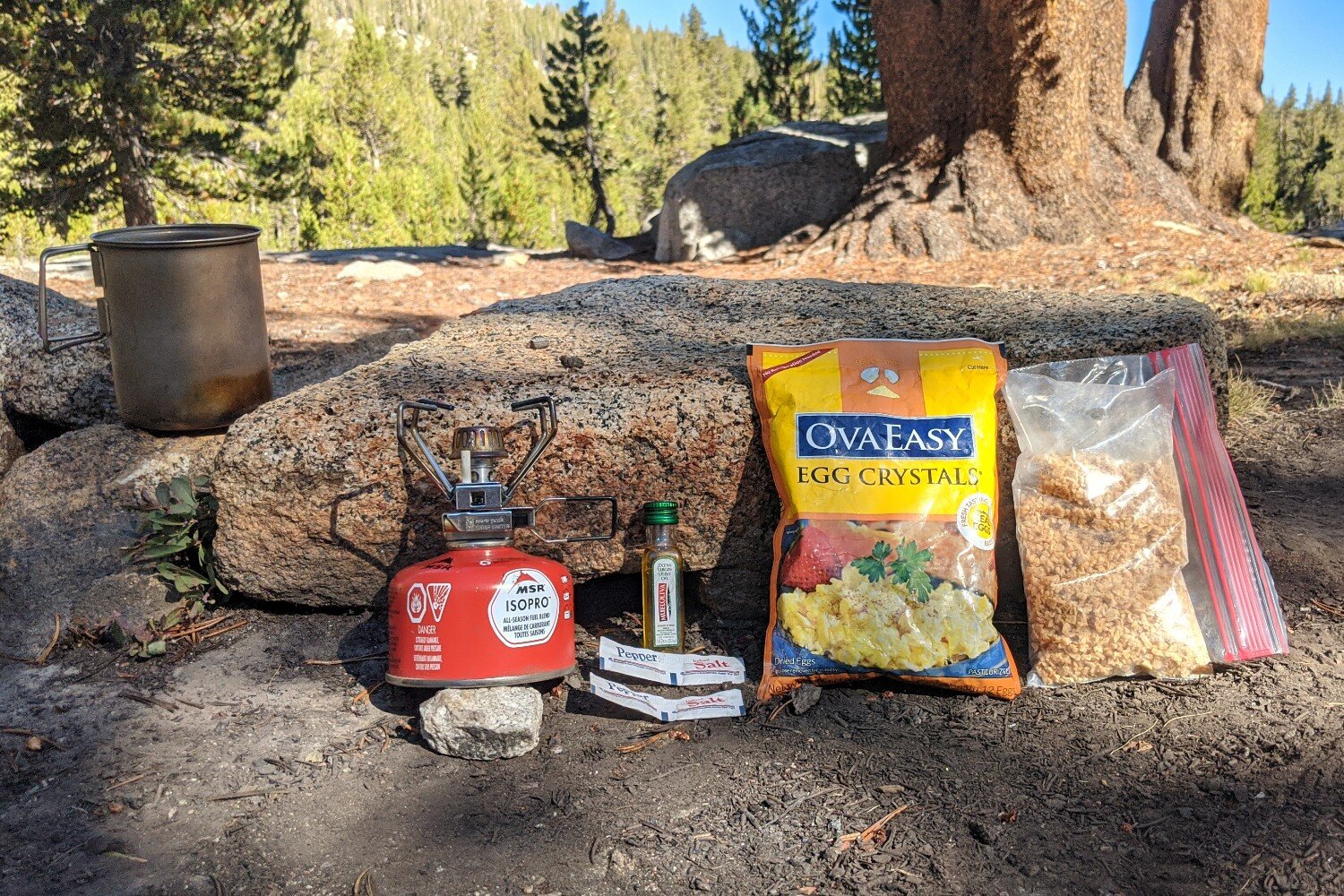
SUPPLEMENTARY FOODS, SPICES & CONDIMENTS
We always bring along a few spices and supplementary staples in case we need to jazz up a meal that sounded a lot better than it tasted. Vegans & vegetarians may also need to add things like protein and fat to their meals to maintain healthy bodies on trail. Below are some of our favorite supplementary foods and gear items to keep meal-time fun and healthy.
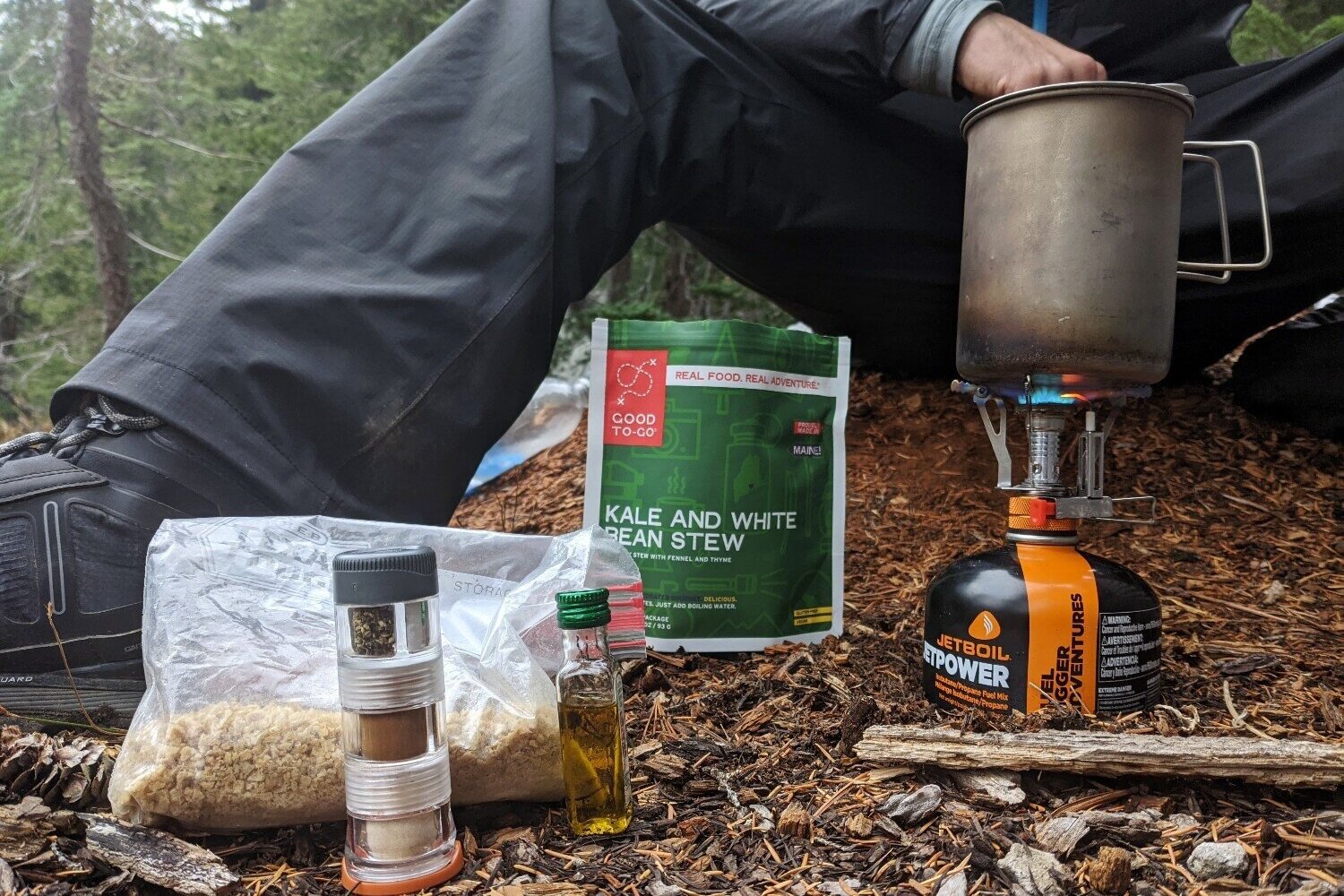
- GoToobs – These things are seriously the coolest. We use them for condiments, sunscreen, and toiletries when we travel. They’re spill proof, easy to fill, and, best of all, we don’t have to lug around the entire container of mayo anymore.
- GSI Spice Missile – We used to always use little individual baggies for all of our spices on the trail, but we would always run into two major problems. Dirt from our fingers would end up becoming part of our favorite seasoning mix or the zipper would eventually stop sealing because it became clogged with little granules. The Spice Missile is ultralight, super compact, and it allows you to bring six different spices. It’s a luxury item we never hit the trail without.
- Ova Easy Egg Crystals – Yep, powdered eggs. Before you scoff, let us just say that if you’ve ever had continental breakfast at a budget hotel, you’ve probably already eaten and enjoyed these. They take some time to make and require some scrubbing after you’re done, but they’re a great way to get some protein without packing much weight. For bonus flavor points, throw in some salt, pepper, and dehydrated veggies or potato chips!
- Textured Vegetable Protein – TVP is an affordable and versatile way to really kick your meals up a notch. It’s great to add to dinners after a long day on the trail when you’ll need some extra protein to help your body recover. It has a meaty texture and easily absorbs the flavor of spices and broths. We really like to throw it in soups and pasta dishes like Mountain House Pasta Primavera.
- Solely Fruit Jerky– After a couple days on the trail we REALLY start to crave fresh fruit. The Solely Fruit Jerkies are just pressed fruit with nothing added, and they really hit the spot. We usually pack along enough to have one or two everyday to break up into oatmeal or desserts.
- Primal Vegan Jerky – If you haven’t tried these yet, you’re in for a real treat. If you’ve missed the flavor of jerky, and, to a lesser extent, the feeling of having it stuck between your teeth, look no further. Primal Jerky is great by itself, but we also like to break it up into our freeze-dried meals for a savory upgrade. Try the Texas BBQ flavor in your Mountain House Creamy Macaroni and Cheese or the Thai Peanut flavor in some Backpacker’s Pantry Pad Thai.
- Olive oil – This is a staple that we always carry with us. It can add a buttery flavor to vegan dishes, help keep your digestive system working smoothly, and has a really high calorie-to-ounce ratio.
- Karen’s Just Veggies & Just Fruit – Just Veggies and Just Fruit are, as the name would imply, dehydrated fruit and veggies with no additives. We like to use these for DIY meals, but they’re also great to add to freeze-dried pasta and granola meals.
- Justin’s Nut Butter Packets – These nut butters make for a really high calorie snack on their own, but we also like to add it to granola and meals for extra flavor.
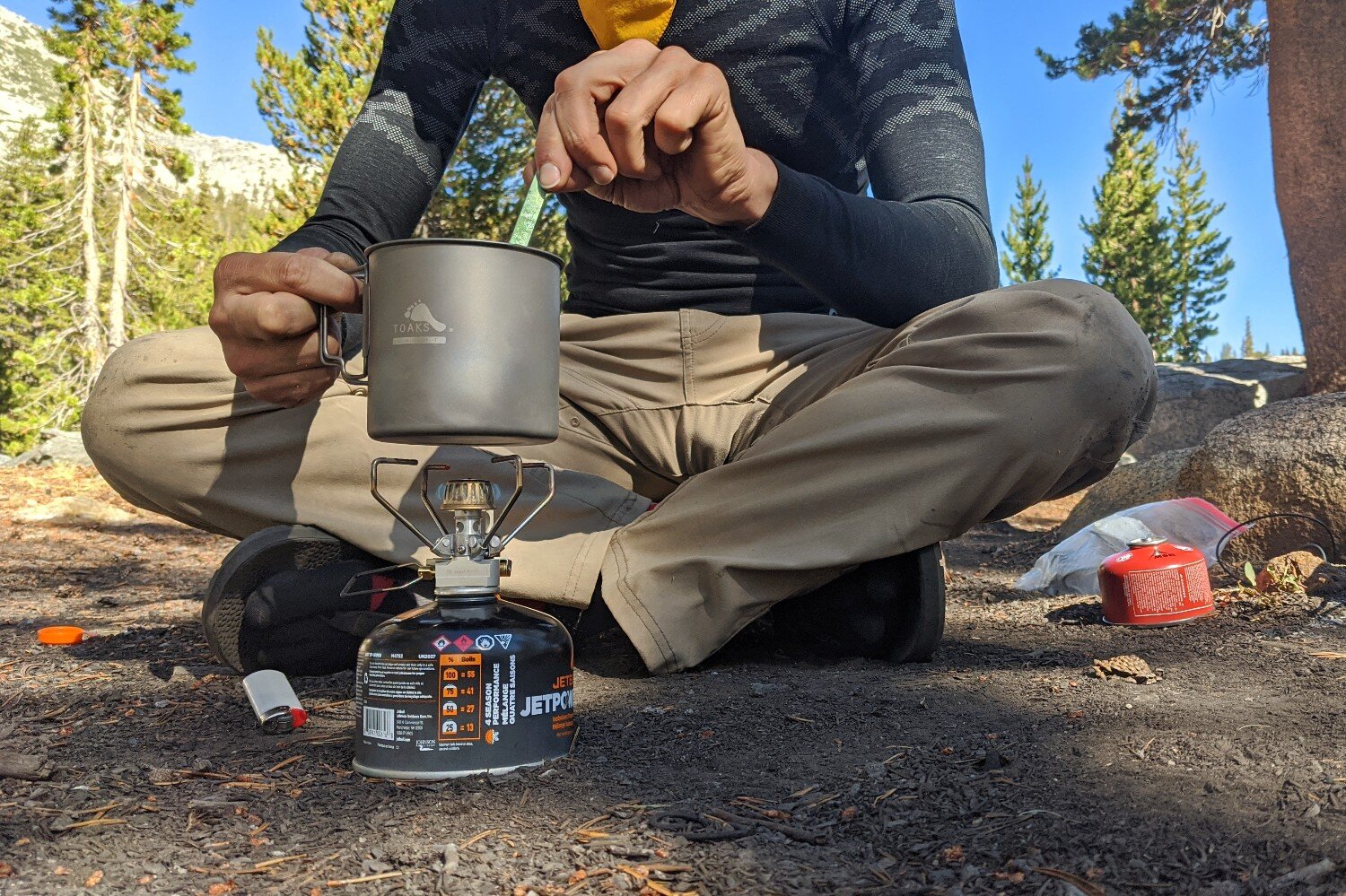
DIY MEALS
For most of our trips, we take a combination of freeze-dried meals and DIY meals. We always look for foods that are quick and easy to make, lightweight, and high in calories. Check out our 13 Great Backpacking Meal Recipes and Food Dehydration Tips post for some of our favorite DIY meals! A lot of the recipes include meat, but in most cases you can substitute it for TVP, Primal Vegan Jerky, or dehydrated shiitake mushrooms. Our Best Lightweight Backpacking Food guide also has some good info about meal planning and some ideas for foods that work well on the trail. Below is a list of some of the vegan and vegetarian foods we like to bring along with our freeze-dried meals.
- Knorr Cheddar Broccoli Rice
- Knorr Spanish Rice
- Ramen Express Vegetarian Chicken Ramen
- Top Ramen Soy Sauce Flavor
- Kraft Easy Mac
- Idahoan Four Cheese Mashed Potatoes
- Idahoan Buttery Homestyle Mashed Potatoes
- Near East Roasted Garlic & Olive Oil Couscous
- Near East Parmesan Couscous
- Near East Wild Mushroom & Herb Couscous
- Angel Hair Pasta + Knorr Pesto Sauce Mix (or olive oil and whatever spices you like)
- Quaker Maple & Brown Sugar Oatmeal
- Unfrosted Poptarts
